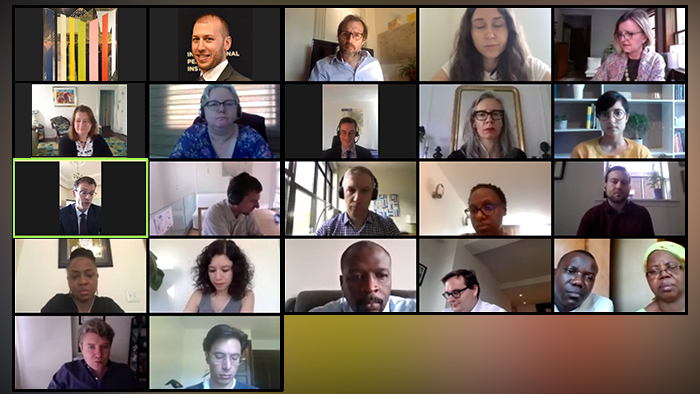
The UN Security Council is expected to renew the mandate of MINUSMA in June 2020. The upcoming mandate renewal negotiations offer Council members the opportunity to take stock of progress in the UN’s stabilization efforts in Mali and refine its strategic engagements with the country. Ahead of the negotiations, IPI, the Stimson Center, and Security Council Report organized a virtual workshop on May 20th, 2020, to discuss MINUSMA’s mandate and political strategy.
This workshop provided a forum for member states, UN stakeholders, and outside experts to share their assessments of the situation in Mali. The discussion was intended to help the Security Council make more informed decisions with respect to the strategic orientation, prioritization, and sequencing of the mission’s mandate and actions on the ground. This event was convened with support from the Government of Canada.
The workshop’s discussions focused on recent developments in Mali and on the mission’s current mandate. Participants highlighted recent opportunities and challenges for consolidating political reforms and implementing key provisions of the peace agreement.
Some key points made by participants included:
- MINUSMA’s current strategic priorities (supporting the implementation of the peace agreement and support to stabilization of Mali’s center region) are relevant and position the mission well to engage on its comparative advantages in support of Mali;
- Mali is defined by a complex and ever-changing political and security landscape, and MINSUMA is an important actor but not the only one required to address the structural drivers of violence;
- This is a clear political moment for Malian actors to consolidate gains in the peace process and continue through with envisioned political reforms;
- While focus is on short term needs, it is important that the entire UN (including the mission) begin to mobilize support for Mali’s peacebuilding, governance and development needs in order to help the country move towards a more sustainable peace.
The discussions underscored the centrality of MINUSMA’s support to the protection of civilians and the pursuit of a stronger, Malian-led approach to human rights, accountability, and effective state institutions. Discussants reflected on MINUSMA’s stabilization role in the context of a landscape filled with many national and international actors, and that it may take additional time for the UN to see gains from the shifts embedded within the mission’s 2019 mandate.
The mission is continuing to implement its mandated priorities despite the exceptional circumstances stemming from the COVID-19 pandemic. The UN (through MINUSMA) has signed three memorandums of understanding with the Malian Ministry of Health and Social Affairs to support national responses to the crisis. Nonetheless, the medium-term implications of the pandemic and mitigation responses remain uncertain for the country and the mission. How the situation evolves will likely impact MINUSMA’s trajectory and operations in the coming months.







